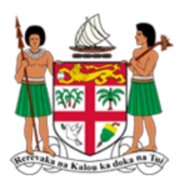Best Renewable & Alternative Energy Lawyers in Fiji
Share your needs with us, get contacted by law firms.
Free. Takes 2 min.
Or refine your search by selecting a city:
List of the best lawyers in Fiji
About Renewable & Alternative Energy Law in Fiji
Renewable and alternative energy law in Fiji is shaped by the country's commitment to sustainable development and its dependence on imported fossil fuels. Fiji has set clear goals to increase the use of renewable energy such as solar, wind, hydro, and biomass, to ensure energy security, economic development, and environmental protection. The framing of these laws aims to encourage investment, protect natural resources, and align with international agreements addressing climate change.
The government actively promotes renewable energy by creating policies, incentives, and regulatory frameworks that support the development and integration of clean energy sources into the national grid. Legal considerations in this field touch on land use, licensing, environmental impact, investment protection, and energy regulations.
Why You May Need a Lawyer
Navigating the renewable and alternative energy sector in Fiji can be complex due to several regulations, permits, and stakeholders involved. You may require a lawyer in the following situations:
- Securing environmental and development approvals for a new renewable energy project.
- Negotiating power purchase agreements or supply contracts with local utilities.
- Understanding and complying with government incentives, grants, or tax schemes for renewable energy.
- Acquiring land or negotiating land leases for energy projects, including working with native landowners or iTaukei Land Trust Board (TLTB).
- Protecting intellectual property for new technologies or responding to patent issues.
- Resolving disputes involving land rights, contract enforcement, or project financing.
- Navigating joint ventures or public-private partnerships in energy infrastructure.
- Managing the legal aspects of importing, exporting, or installing renewable energy technologies.
Local Laws Overview
Key local laws and regulations governing renewable and alternative energy in Fiji include the Electricity Act, the Environment Management Act, the iTaukei Land Trust Act, and the Foreign Investment Act. The Fiji National Energy Policy outlines the government's objectives to diversify the energy mix and promote clean energy.
Specific permits and licenses are necessary for constructing and operating energy projects. Proponents must also comply with environmental impact assessments (EIA) and may need consent from landowners or traditional land trustees. Additionally, Fiji Electricity Authority (FEA) regulates the generation and distribution of electricity including integration of private renewable energy into the main grid.
Foreign and local investors must also be aware of restrictions or requirements for investment in the energy sector, including joint venture requirements and local equity participation. Consumer protection, tariff regulation, and adherence to technical standards are enforced to ensure safety and reliability of energy systems.
Frequently Asked Questions
What types of renewable energy sources are most common in Fiji?
Fiji mainly uses hydropower, biomass, solar, and wind energy. Hydropower is the largest contributor, but solar installations are rapidly increasing, especially in rural areas and on outer islands.
Do I need government approval to start a renewable energy project?
Yes, most projects require permits from relevant authorities, including environmental clearances and possibly land use approvals, especially if the project is large-scale or involves native land.
Can foreign investors participate in Fiji's renewable energy sector?
Yes, foreign investors are welcome, but they must comply with the Foreign Investment Act and sector-specific requirements. Sometimes, joint ventures with local partners or compliance with local equity rules are necessary.
What incentives are available for renewable energy in Fiji?
The Fijian government offers incentives such as tax breaks, duty concessions on imported equipment, and financial support for eligible renewable energy projects.
How is land for energy projects secured in Fiji?
Land can be secured by lease or purchase, but much of Fiji's land is customarily owned and managed by the iTaukei Land Trust Board. Obtaining consent and negotiating terms with landowners and TLTB is often required.
What are the environmental requirements for renewable energy projects?
Most projects must undergo an Environmental Impact Assessment (EIA) under the Environment Management Act, particularly if they may significantly affect local ecosystems or communities.
How are energy tariffs set for renewable energy providers?
The Fiji Electricity Authority and the Commerce Commission oversee energy tariffs, which are often set through power purchase agreements negotiated between energy producers and the utility.
Can I install a solar power system for my home or business?
Yes, individuals and businesses can install solar power systems. Small systems typically require minimal paperwork, but larger installations may need local council permits and coordination with the FEA or Energy Fiji Limited (EFL).
What happens if there is a dispute over a renewable energy contract?
Disputes can be resolved through negotiation, mediation, or, if necessary, court proceedings. Engaging a lawyer with experience in energy law can help protect your interests and seek resolution efficiently.
Who regulates renewable and alternative energy in Fiji?
The main regulatory bodies are Energy Fiji Limited (EFL), the Department of Energy, the Environment Ministry, and the iTaukei Land Trust Board for land issues. Their approval is essential for compliance and successful project development.
Additional Resources
If you need more information or support, the following resources and organizations can be helpful:
- Department of Energy - Government body responsible for energy policy and oversight.
- Energy Fiji Limited (EFL) - Main utility company and regulator for energy producers.
- iTaukei Land Trust Board (TLTB) - Oversees use of customary land for projects.
- Fiji Commerce Commission - Regulates tariffs, pricing, and consumer issues in energy markets.
- Ministry of Environment - Oversees environmental compliance and EIAs.
- Fiji Department of Town and Country Planning - Handles development approvals and zoning.
- Local law firms with energy expertise - Provide legal advice on all aspects of renewable and alternative energy.
Next Steps
If you are planning to invest in or develop a renewable or alternative energy project in Fiji, it is advisable to seek legal assistance early in the process. Here is how you can proceed:
- Identify your project's scope and location, and prepare initial documentation.
- Contact a lawyer or law firm experienced in energy and environmental law for a consultation.
- Gather information and required documentation about land ownership, environmental impacts, and proposed technology.
- Work with your legal advisor to submit permit and license applications to the relevant authorities.
- Ensure all contracts, including land leases and power purchase agreements, are reviewed for legal compliance and fairness.
- Stay updated with local laws, incentives, and regulatory changes through reliable sources and regular legal advice.
Professional guidance can help you avoid common pitfalls, streamline approvals, and set your renewable energy project up for long-term success in Fiji.
Lawzana helps you find the best lawyers and law firms in Fiji through a curated and pre-screened list of qualified legal professionals. Our platform offers rankings and detailed profiles of attorneys and law firms, allowing you to compare based on practice areas, including Renewable & Alternative Energy, experience, and client feedback.
Each profile includes a description of the firm's areas of practice, client reviews, team members and partners, year of establishment, spoken languages, office locations, contact information, social media presence, and any published articles or resources. Most firms on our platform speak English and are experienced in both local and international legal matters.
Get a quote from top-rated law firms in Fiji — quickly, securely, and without unnecessary hassle.
Disclaimer:
The information provided on this page is for general informational purposes only and does not constitute legal advice. While we strive to ensure the accuracy and relevance of the content, legal information may change over time, and interpretations of the law can vary. You should always consult with a qualified legal professional for advice specific to your situation.
We disclaim all liability for actions taken or not taken based on the content of this page. If you believe any information is incorrect or outdated, please contact us, and we will review and update it where appropriate.
Browse renewable & alternative energy law firms by city in Fiji
Refine your search by selecting a city.
















